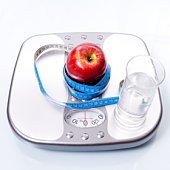It’s not exactly a new strategy for aiding weight loss, but if you aren’t currently using food journals to try to shed pounds, recent research suggests that perhaps you should be.
Scientists from the Fred Hutchinson Cancer Research Center summarized the following from their study, which appeared in the July 16 online edition of the Journal of the Academy of Nutrition and Dietetics: women who want to lose weight should faithfully keep a food journal and should avoid skipping meals and eating in restaurants—especially at lunch.
“When it comes to weight loss, evidence from randomized, controlled trials comparing different diets finds that restricting total calories is more important than diet composition such as low-fat versus low-carbohydrate. Therefore, the specific aim of our study was to identify behaviors that supported the global goal of calorie reduction,” said lead researcher Anne McTiernan, MD, PhD. McTiernan et al. found:
- Women who kept food journals consistently lost about 6 more pounds than those who did not.
- Women who reported skipping meals lost almost 8 fewer pounds than women who did not.
- Women who ate out for lunch at least weekly lost on average 5 fewer pounds than those who ate out less frequently.
“For individuals who are trying to lose weight, the No. 1 piece of advice based on these study results would be to keep a food journal to help meet daily calorie goals. It is difficult to make changes to your diet when you are not paying close attention to what you are eating,” said McTiernan, director of the Hutchinson Center’s Prevention Center and a member of its Public Health Sciences Division.
As you start to keep a food journal, use the following tips, drawn directly from those provided to study participants:
1. Be honest. Record everything you eat.
2. Be accurate. Measure portions and read labels.
3. Be complete. Include details such as how the food was prepared and which toppings or condiments you added.
4. Be consistent. Always carry your food diary with you or use a diet-tracking application on your smartphone.
“While the study provided a printed booklet for the women to record their food and beverage consumption, a food journal doesn’t have to be anything fancy,” McTiernan said. “Any notebook or pad of paper that is easily carried or an online program that can be accessed any time through a smart phone or tablet should work fine.”
Complements of IDEA Health & Fitness Association.

